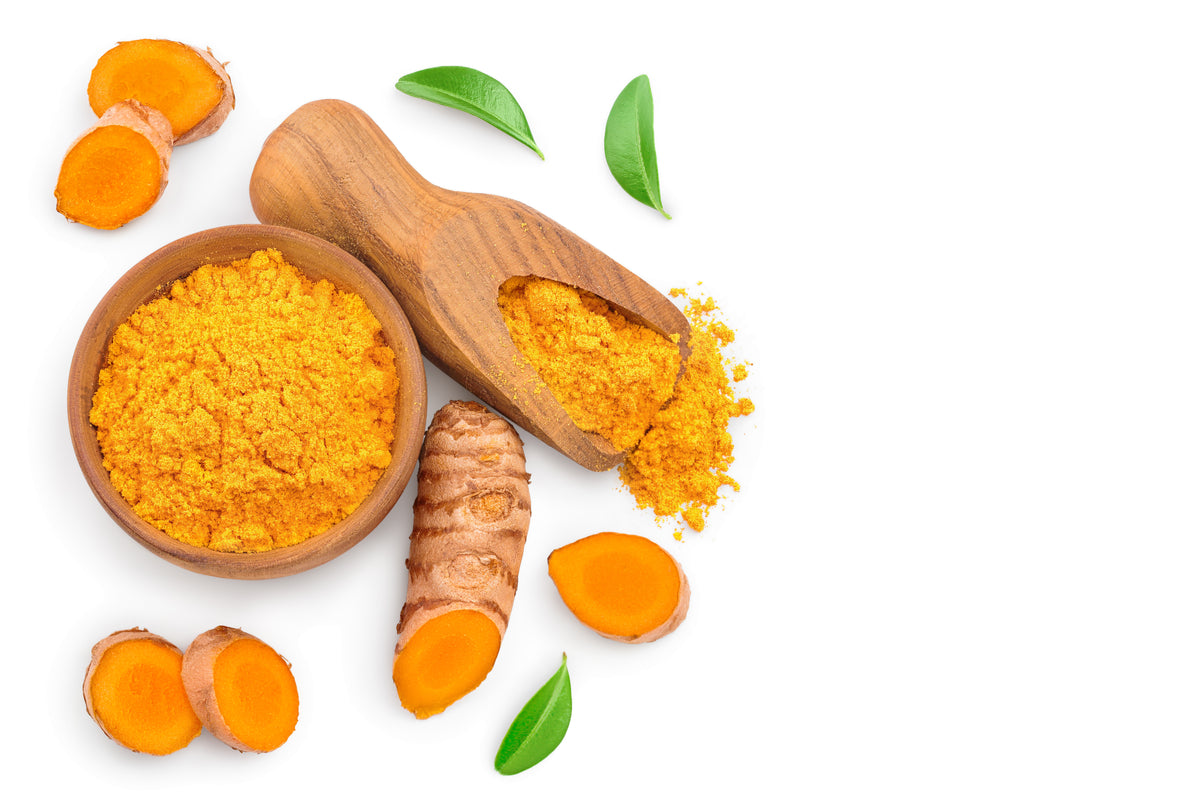
Quick Take
Struggling with chronic inflammation and wondering if adding turmeric to your diet can really help you beat inflammation naturally? Here's what nutrition science tells us.
Before We Begin: Lose Weight, Reduce Inflammation...in 2 Weeks!
Discover the easiest way to reboot and refresh your body and immune system. Get whole food plant-based meal delivery from MamaSezz and flood your body with the nutrients you need to feel better fast. Packed with anti-inflammatory and anti-oxidants, each prepared dishes from MamaSezz is designed to help you reach your health goals. Learn more here.
On This Page
What is Turmeric?
How Turmeric Reduces Inflammation Naturally
How to Increase Turmeric Absorption
Should I Take a Curcumin Supplement or Just Eat Turmeric?
5 Simple Plant-Based Recipes to Add More Turmeric to your Diet
Key Takeaways
What is Turmeric?
Turmeric is a spice made from the roots of a flowering turmeric plant. The spice has a warm, slightly bitter taste and is often used in Asian food. Turmeric contains the compound curcumin, which gives curry its yellow color. Curcumin is also known for its anti-inflammatory and anti-oxidant properties and while its been used for thousands of years medicinally, modern science now corroborates the many health benefits of adding turmeric to your plate.
How Turmeric Reduces Inflammation Naturally
While inflammation is the natural response of our body against pathogens and bacteria, chronic inflammation can cause many severe conditions such as cancer, heart disease, Alzheimer's, and more. The good news is you can beat inflammation naturally by eating more plant-based foods and fewer inflammatory ones.
While a well-rounded whole food plant-based diet will have anti-inflammatory effects, turmeric is an especially potent anti-inflammatory, while high in antioxidants, making it a great addition to your diet if you suffer from chronic inflammation.
Turmeric, also known as curcuma, is native to Asia, India, and Central America. It’s closely related to ginger and it gives a bitter flavor to dishes. Curcumin, the main bioactive compound in turmeric, is an inflammation blocker, and very often can be used instead of anti-inflammatory drugs for a variety of conditions, including fatigue, rheumatism, arthritis, joint pain, and irritable bowel syndrome (IBS).
Better than NSAIDs?
This randomized study pitted curcumin against the leading drug of choice (diclofenac sodium, a NSAID) for alleviating pain with rheumatoid arthritis. While both groups found their pain and symptoms improved, the curcumin group did significantly better than those in the drug group. And no side effects so speak of, unlike the leading drug of choice.
How You Can Increase Turmeric Absorption
While the curcumin in turmeric is poorly absorbed into the bloodstream, you can still reap all its glorious health benefits. Increase you absorption of curcumin by following these simple tips:
-
Consume turmeric with black pepper, as the combination of curcumin and piperine in pepper dramatically enhances absorption, by up to 2,000 percent!
-
Turmeric is fat-soluble, so it's more readily absorbed when consumed with foods high in fat, such as avocados.
-
Aim to consume turmeric in combination with foods high in quercetin, a flavonoid found in onions, capers, apples, red grapes, and citrus.
Should I Take a Curcumin Supplement or Just Eat Turmeric?

While curcumin in indeed an active ingredient in turmeric that helps beat inflammation, it may not be the only one!
Dietary turmeric contains over 300 compounds. And while there have only been a few studies conducted comparing the medical properties of the isolated compound curcumin against the whole food turmeric, the results have shown the turmeric plant is more beneficial than a pill form when it comes to anti-cancer activity.
Long story short: nutrition science suggests it's best to simply eat turmeric in its whole food form (as a spice for your food!) rather than picking up a pill at the natural food store.
5 Simple Plant-Based Recipes to Add More Turmeric to your Diet
1. Anti-Inflammatory Lemon Lentil Soup
Image and Recipe from MamaSezz
This hearty lentil vegan soup is loaded with turmeric, and is perfect for those cold winter nights. It's also packed full of protein and iron from the immunity-boosting lentils.
2. Vegan Turmeric Latte

Image and Recipe from MamaSezz
Start your day off right with this caffeine-free and vegan turmeric latte. Fight inflammation and no sugar crash!
3. Baked Turmeric Cauliflower with Fennel
Image and Recipe from Nutrition Studies
Craving something fancy (but easy!) for your busy weeknights? This heavenly baked turmeric cauliflower will do the trick. Fight inflammation and get dinner on the table in 20 minutes? Yes please!
4. Turmeric Carrot Muffins with Chia and Coconut
Image and Recipe from Vegan Richa
These delicious turmeric muffins are the perfect plant-based breakfast – nutritional powerhouses, brimming with healthy, anti-inflammatory ingredients. They're also an awesome way to help little ones eat healthier.
5. Oil-Free Golden Turmeric Salad Dressing
Image and Recipe from Sprouting Zen
Feel free to use this oil-free turmeric dressing on anything and everything: in your salads, on your baked potatoes, drizzled on buddha bowls, you name it. It's creamy, sweet and savory, and jazzes up any meal with flavor and a cheerful boost of color!
Key Takeaways
Turmeric has been used as a spice and medicinally for thousands of years and in the last 50 years, modern science has proven its health benefits. -
Turmeric contains the compound, curcumin, which is known for its anti-inflammatory and anti-oxidant properties and its been shown to reduce chronic inflammation and help with a variety of illnesses including: rheumatoid arthritis, IBS, Alzheimer's, even cancer.
-
Studies suggest eating turmeric in its whole form is even more beneficial than taking curcumin supplements.
**
Rafaela Michailidou is a Vegan Lifestyle Coach, and a freelance health and wellness content writer, with a Plant-Based Nutrition Certificate from the T. Colin Campbell Center for Nutrition Studies.





